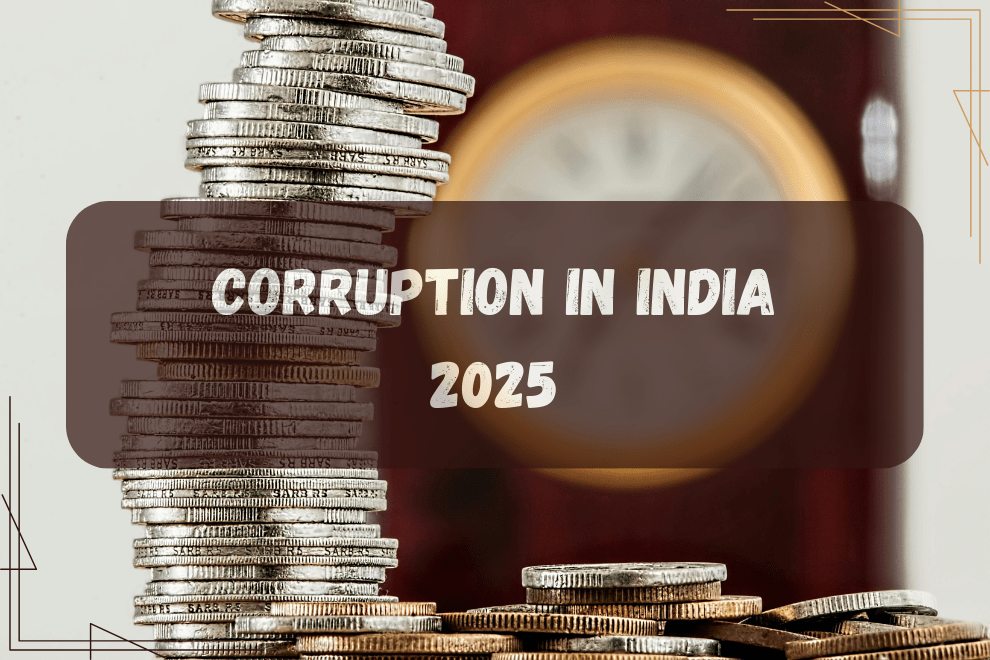India, the world’s largest democracy, boasts a rich cultural heritage and rapid economic growth. However, one of the most persistent challenges hindering its progress is corruption. A deep-rooted issue that affects all levels of governance, corruption erodes public trust, stifles economic development, and undermines democratic institutions. To combat this menace effectively, understanding its causes, consequences, and potential solutions is imperative.
The Roots of Corruption in India
Corruption in India stems from multiple factors that intertwine to create a complex web of unethical practices. These factors include:
- Bureaucratic Red Tape: The labyrinthine processes in government institutions often necessitate multiple approvals, creating opportunities for bribery.
- Lack of Transparency: The absence of clear and open systems in public administration leads to opacity, enabling corrupt practices.
- Weak Enforcement of Laws: Although India has stringent anti-corruption laws, their enforcement remains inconsistent, allowing offenders to escape accountability.
- Economic Disparities: Widening income gaps create a fertile ground for corruption as individuals seek shortcuts to gain financial advantages.
- Cultural Tolerance: In some cases, societal norms inadvertently condone corrupt practices, treating them as inevitable or harmless.
The Consequences of Corruption
Corruption’s impact on India is profound and multifaceted, affecting various aspects of society and governance:
- Economic Stagnation: Corruption distorts markets, reduces investments, and increases the cost of doing business, impeding economic growth.
- Erosion of Public Trust: When people perceive government institutions as corrupt, their trust diminishes, leading to civic disengagement.
- Social Inequality: Corruption exacerbates social disparities, as resources meant for public welfare are often siphoned off by unscrupulous individuals.
- Weakened Institutions: Persistent corruption undermines the integrity and efficiency of public institutions, affecting service delivery.
- Environmental Degradation: In sectors like mining and real estate, corruption often leads to illegal activities that harm the environment.
Measures to Prevent Corruption
Tackling corruption in India requires a holistic approach encompassing legislative reforms, technological interventions, and societal change. Below are some effective strategies:
- Strengthening Legal Frameworks:
- Amend and enforce anti-corruption laws to ensure swift and decisive action against offenders.
- Empower institutions like the Central Vigilance Commission (CVC) and the Lokpal to function independently and effectively.
- Promoting Transparency:
- Implement e-governance to reduce human intervention and increase accountability.
- Make public procurement processes transparent by using digital platforms.
- Ensure the Right to Information (RTI) Act is used effectively by citizens to hold authorities accountable.
- Leveraging Technology:
- Use blockchain technology for secure and transparent record-keeping in public transactions.
- Develop mobile apps and online portals for citizens to report instances of corruption anonymously.
- Simplifying Bureaucratic Processes:
- Streamline administrative procedures to minimize the need for multiple approvals and interactions.
- Introduce single-window clearance systems for businesses and public services.
- Encouraging Civic Participation:
- Foster a culture of civic responsibility by educating citizens about their rights and duties.
- Strengthen grassroots movements and NGOs that work against corruption.
- Enhancing Ethical Practices:
- Introduce ethics training for public officials to instill a sense of integrity and accountability.
- Recognize and reward whistleblowers who expose corrupt practices.
- Addressing Socio-Economic Disparities:
- Implement policies that promote equitable economic growth to reduce the temptation for corrupt practices.
- Ensure effective delivery of welfare schemes to the intended beneficiaries.
The Role of Citizens in Combating Corruption
While the government plays a pivotal role, citizens must also actively participate in the fight against corruption. Here are ways individuals can contribute:
- Be Vigilant: Report instances of corruption to appropriate authorities.
- Use Digital Tools: Leverage online platforms to file grievances and monitor government schemes.
- Support Ethical Leadership: Elect leaders with a proven track record of integrity and transparency.
- Foster a Culture of Accountability: Encourage open discussions on corruption and its impact on society.
- Promote Awareness: Educate others about their rights and the importance of standing against corrupt practices.
The Road Ahead
Eliminating corruption in India is undoubtedly a daunting task, but it is not insurmountable. With concerted efforts from the government, civil society, and citizens, significant progress can be made. Strengthening institutions, leveraging technology, and fostering a culture of transparency and accountability are vital steps toward creating a corruption-free India.
Corruption thrives in darkness, and bringing it to light through transparency and vigilance can pave the way for a brighter future. As citizens of this great nation, it is our collective responsibility to ensure that ethical practices become the norm and not the exception. Together, we can build an India that truly reflects its potential—a nation where honesty and integrity reign supreme.
India continues to face significant challenges in the fight against corruption, despite efforts to combat it through legislation and reforms. The country consistently ranks poorly in global corruption perception indices, indicating that corruption remains deeply embedded in both public and private sectors. Issues such as bribery, political corruption, and inefficient governance persist, affecting economic growth and social development. While initiatives like the Right to Information Act and digitization of services aim to increase transparency, more comprehensive systemic changes are needed to effectively reduce corruption and improve public trust in institutions.
India ranks poorly in global corruption indices, placed 85th with a score of 40 in Transparency International’s 2023 Corruption Perceptions Index. In comparison, countries like Denmark and New Zealand lead with scores of 90 and 87, reflecting strong transparency and low corruption. Singapore (84) is also a leader, thanks to its strict anti-corruption policies. On the other hand, South Africa (70th, score 44) and Brazil (94th, score 38) face similar challenges to India, with corruption prevalent in politics and business. While India has implemented reforms like the Digital India campaign and GST, corruption remains a persistent issue, requiring further systemic change.








